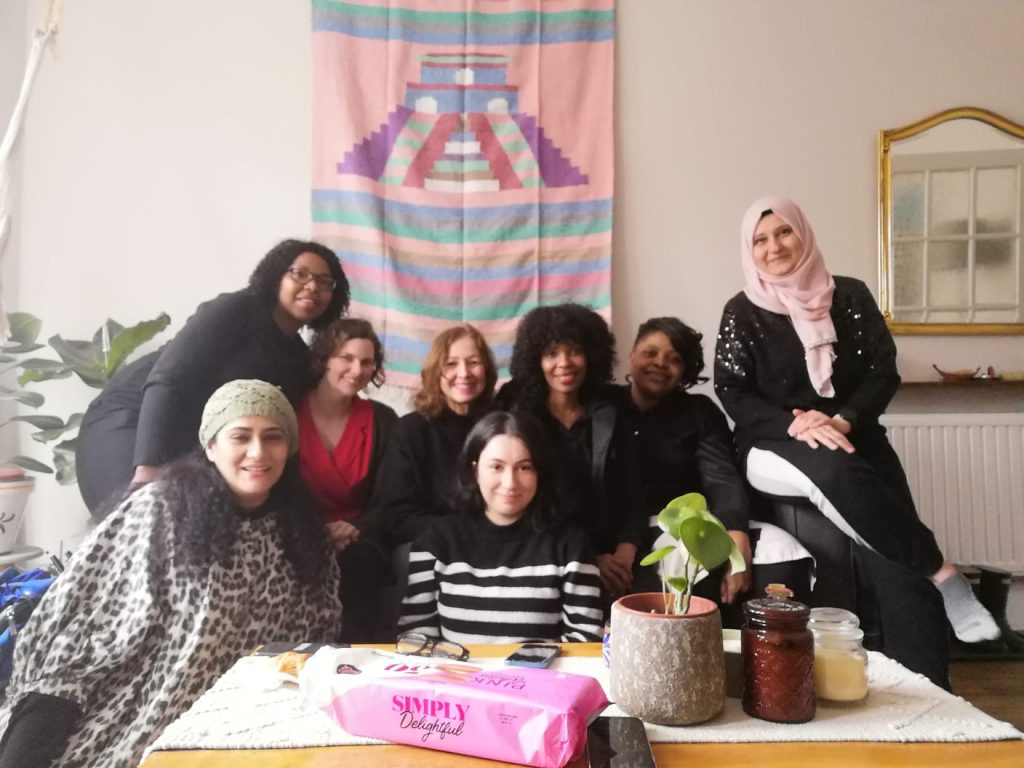
This blog is part of our Radical Solidarity Series, dedicated to showcasing the work of grassroots organisations who are using Right to Remain’s resources to support their communities. If you’d like us to feature your organisation, please get in touch!
Unity Sisters is an autonomous collective based in Glasgow, which provides a safe space for migrant women and their families. Just over a year ago, Unity Sisters launched their Community Peer Advocacy Project and we were lucky to be able to speak to Virginie to hear about the project.
What is the Community Peer Advocacy Project?
Before Unity Sisters began their Community Peer Advocacy Project, they were involved in a partnership project called ‘Our Rights, Our Communities’. This project was a Glasgow based collaboration between Govanhill Baths Community Trust, Milk Café and Unity Sisters. The aim of the project was to provide a unique model of community-based New Scots Women-led advocacy, as well as peer support services.
This project involved a series of workshops and training sessions on various topics, including asylum appeals, fresh claims, NHS services, and accessing education. Emerging from this project came the recognition that building a strong knowledge foundation is the first step for self-advocacy.
So, the Community Peer Advocacy Project was a natural next step for the Unity Sisters. Since launching just over a year ago, Unity Sisters have opened their doors to women to attend appointments, or attend drop in sessions. They have also given support over the phone and over WhatsApp. There are currently 10 volunteers, and the work is shared among the group.
The Community Peer Advocacy Project is a natural extension of Unity Sisters’ central mission to give and provide support to one another, without hierarchy and without judgment.
What issues are you seeing in your work?
A central mission of the Community Peer Advocacy Project is to provide support to one another, without hierarchy and without judgment. The issues Unity Sisters are seeing at the sessions are complex, and varied, and reflect the realities of migrant communities in Glasgow and across Scotland.
Peer to peer mental health support is a huge part of Unity Sisters’ work. Volunteers at the Unity Sisters have offered emotional support to women facing traumatic events, as well as advocating for their rights with social services, police and lawyers. Volunteers at Unity Sisters know first hand the effects that trauma can have on a person’s life.
Virginie explained that one of the effects of trauma means that people are not always able to explain their case clearly to people at the Home Office or otherwise. Because of this, Unity Sisters work with the women they support to create safe spaces to talk about their experiences, and prepare them for sharing this information with others.
Most of the women attending have issues with unsuitable housing, including hotel accommodation. Due to the Home Office’s ‘Operation Maximise’ policy, asylum seekers across the UK are being forced to share hotel rooms with huge risks of re-traumatisation. Unity Sisters have also helped to challenge cases in which women were moved to England, and collaborated with Living Rent recently to resist a family being moved.
Virginie also explained the complexity surrounding working with lawyers and interpreters. The quality of interpreters is often haphazard, and sometimes the women that Unity Sisters support do not know the name of their lawyer or the firm – just the name of the interpreter. This causes multiple issues. Unity Sisters remind people they support how important it is to know the name of your lawyer; it is your case and you are responsible for taking care of it.
How do you use the Toolkit in your work?
The Toolkit is a key guide for the Unity Sisters in their Community Peer Advocacy Project.
Virginie explained they use the Toolkit to advise women who attend our drop ins.
‘Because immigration law is changing all the time, it is so important to be able to refer to a resource like the Toolkit in our work’
Right to Remain ran a workshop with Unity Sisters back in July 2023. In this workshop we wanted to give participants an overview of Right to Remain’s resources, and help people feel more confident navigating the Toolkit.
We highlighted the translation function, as well as our YouTube channel, with key videos available in various languages. Virginie told me that English is often the 3rd, or 4th language spoken by the women that Unity Sisters support, so multilingual resources are a huge help.
What other campaigners are Unity Sisters involved with?
As well as the Community Peer Advocacy Project, Unity Sisters are also involved in a number of campaigns in Glasgow.
Recently, Unity Sisters have been involved in the resistance to Home Office raids and detention under the Rwanda scheme – and have been organising with the No Evictions Network to provide solidarity presence outside Brand Street, Glasgow’s Immigration Reporting Centre.
During COVID, Unity Sisters campaigned for all asylum seekers and migrants in Scotland to be granted leave to remain. This campaign was sustained throughout lockdown, and galvanized support across Scotland.
More recently, Unity Sisters were involved in the successful campaign for the Scottish government to offer free bus travel to all asylum seekers in Scotland. The Scottish government has agreed in theory, but hasn’t yet committed due to budget.
What’s next for Unity Sisters and the Community Peer Advocacy Project?
Virginie explained that Unity Sisters want to change the way they work, to try and increase the confidence and legal literacy of the women they support.
They want people to understand it is their responsibility to understand their case and make it strong. They want to encourage people to be active in their cases, read letters from the Home Office, and take active steps to improve their situation. It is such a difficult thing to achieve, because people often feel so powerless in the system. But an important asset that Unity Sisters have is trust: which is built and earned through multiple meetings and through the power of solidarity.
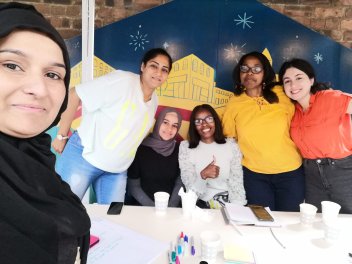

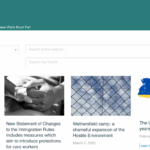






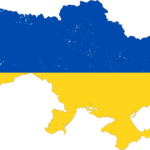
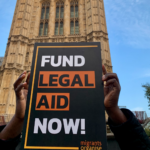
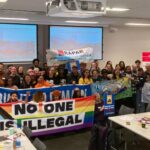
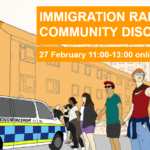

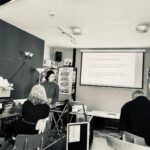
Discussion: